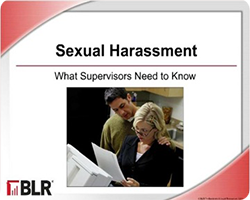Inappropriate sexual behavior has never received as much attention, and rightfully so, as it has in the last few months. A string of accusations directed at public figures brought the issue to the attention of a global audience and resulted in a now-famous #MeToo movement. Women (and men) from around the world have come forward and exposed inappropriate sexual behavior that has, to a large extent, been swept under the rug, usually to protect perpetrators occupying positions of power and influence.
The #MeToo / #TimesUp movements’ influence on policy change
“Time Person of the Year” is announced annually by Time Magazine, where they profile a person, group, idea, or object, that “for better or for worse… has done the most to influence the events of the year.” In 2017, the title went to ‘The Silence Breakers’ – those individuals who participated in and propelled the #MeToo movement to become more than just a hashtag on social media, but a vehicle and a call (rather, shout) for change in the way sexually inappropriate behavior is handled:
– Many people, both men and women, came forward with their stories because the movement created a platform for disclosure;
– The platform for disclosure allowed many victims of sexually inappropriate behavior to name their assailants while receiving support from others who have experienced similar violations;
– Bringing the issue of sexual misconduct in a multitude of industries to light, placed pressure on organizations to investigate allegations in earnest and to place greater effort into changing their policies and work environments to facilitate disclosure and discourage such behavior in the workplace.
– TIME’S UP was founded on 1 January 2018 in response to #MeToo and the TIME’S UP Legal Defense Fund was created, which “provides subsidized legal support to those who have experienced sexual harassment, assault, or abuse in the workplace.”
Although not without its critics, the movement has done a great deal to start a global conversation in an attempt to change harmful normative practices and to deinstitutionalize a culture of indifference when it comes to protecting vulnerable groups in society.
Sexual harassment training
“In all societies, both women and men are powerfully conditioned to repress the daily realities of (sexual harassment and workplace glass ceilings) and to collude with the rest of society in keeping these dimensions of shared experiences hidden.”
― William Keepin
Now, more than ever, organizations should prioritize sexual harassment prevention training, not only tick the boxes, but answer the call for change in the workplace – particularly because of the clear power differential that exists in such a context, and the resulting potential for the abuse of power.
Recommended Courses
This week, Coggno highlights some excellent online training courses to assist organizations and their employees to come to grips with sexually inappropriate behavior:
Course 1: Sexual Harassment Prevention Made Simple
Course 2: Stop Sexual Harassment for Supervisors – National Course
Course 3: Sexual Harassment — What Supervisors Need to Know
Course 4: Sexual Harassment Prevention Made Simple for Managers
*Discounts applicable: 20% OFF, valid thru April 7th, 2018!






















